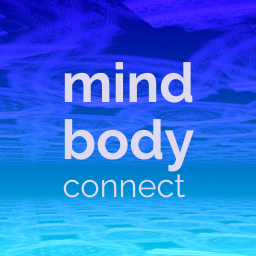Time and the perception of time…how do they work and why does it feel like the passage of time speeds up as we age?
A version of this article was originally published by Thrive Global
In the grand timeline of existence, the human experience is a mere blink of an eye. As a kid you may have felt like you had all the time in the world. Then, seemingly all of a sudden, you were out of school, then your children had grown up and you were looking for those reading glasses.
For example, it seems like I was only just on the beach watching 4thof July fireworks and yet somehow it’s already Halloween. I’m barely through my candy corn and then it’s jingle bells all over again.
Poof, just like that, the days pass and another week has gone by. Weeks become months and then another few years. And before you realize it, another decade or two have gone.
Time and the perception of time
How do they work and why does it feel like the passage of time speeds up as we age?
According to psychologist and BBC columnist Claudia Hammond, “The sensation that time speeds up as you get older is one of the biggest mysteries of the experience of time.” Luckily we are living in an era where we can do more than simply speculate about the passage of time.
An article in Scientific America states:
‘This phenomenon, which Hammond has dubbed the holiday paradox, “Seems to present one of the best clues as to why, in retrospect, time seems to pass more quickly the older we get. From childhood to early adulthood, we have many fresh experiences and learn countless new skills. As adults, though, our lives become more routine, and we experience fewer unfamiliar moments. As a result, our early years tend to be relatively overrepresented in our autobiographical memory and on reflection, seem to have lasted longer.”
The great news is that research offers us ways to perceive time as passing more slowly. Try them out. You may feel like you’ve got all the time in the world.
1. Get Out Of Your Head
Busy. Busy. Busy. We humans are an overly scheduled and distracted bunch. We’ve become obsessed with optimizing,’multi-tasking’ and living at high speed. Scrambling through the typical ‘crazy busy’ day, our moments blur together. Before we know it, the day has gone, we’re back on the train and off to bed.
Cognitive neuroscientist Muireann Irish from the University of Sydney suggests that when we try to ‘multi-task’,we can experience a time contraction effect, in which the day seems to go by extremely quickly and we can’t figure out where all those hours went.
In other words, speed through life stuck in your busy mind and you’re sure to miss delights like sunsets, lovely melodies, key conversations and opportunities to smell the roses.
The answer? Get out of your head (your thinking mind) by returning attention to your body. Notice internal sensations like coolness or heat. Pay attention to what you see, smell and hear in your outer environment.
Studies show that when we’re deeply engaged and aware of what we’re doing, we perceive time as moving more slowly.
If you’ve done the raisin exercise in a mindfulness class, you know exactly what I’m talking about. Take a full minute to eat one raisin and you’ll be counting the seconds tick-tocking by. Wash the dishes as if you’ve got all the time in the world and you may notice the rainbow of colors dancing in the soap. Walk the dog, weed the garden or even answer emails with your full attention and you may delight in the experience of time passing frame by frame.
Sound simple? Think again. Or better yet, stop thinking, get out of your head and start noticing what is right in front of your nose.
2. Do Something New
Has your life become more and more of the ‘same old, same old’? When was the last time you went to a new city or a new restaurant? What was the last novel experience you had?
According to neuroscientist David Eagleman, time speeds up as you grow older because you think you’ve figured out the rules of the world. While this can be advantageous for operating in the world, he suggests the resulting lack of novel input and new experiences, can be key components to making us feel that time speeds up as we age.
Furthermore, another study suggests that new situations can shake up our neural circuits, keep the brain active and offering us the perception that time is moving more slowly. When our attention shifts onto something novel, time appears to tick by more slowly.
The answer? Do something new, everyday. Eagleman suggests driving home a different way, wearing your watch on the other hand, or rearranging your office space, just for starters. Then get serious by planning novelty into your schedule. You may want to consider traveling to a new place with different culture. There’s nothing like exploring new lands to drop us into the slow-moving present moment.
Finally, when you’re not traveling, make sure that you stretch your mind by staying curious and learning something new.
3. Be in Awe
And there it was, that magnificent fall sunset hanging just over the trees, reflected back to me in my rearview mirror. I was awe-struck and while I knew I should be focused on the road ahead, I couldn’t take my eyes off it.
Awe is our natural emotional response of wonder and joy that emerges when we experience profound beauty or a sense of connection to a person, other being or place. Awe can emerge in front of the ocean, under the Milky Way or in a fixed gaze with a newborn.
When was the last time you felt awe?
Research by psychologists at Stanford Universityand the University of Minnesota shows that the sense of awe expands our perception of time. Furthermore, they suggest that participants who experienced awe (relative to other emotions), felt they had more time available.
In other words, awe stops the clock.
Experiencing beauty and connection essentially slows time.
Their research shows that ‘experiences of awe bring people into the present moment, and being in the present moment underlies awe’s capacity to adjust time perception, influence decisions, and make life feel more satisfying than it would otherwise.’
The answer? Find stuff to be awe-stuck about.
Get outside, find a mountain to climb, an ocean to float in. Borrow a baby to hold. Schedule time to watch the sun rise or set, or to rest under the starry, starry sky. If all else fails,make it up. Researchers suggest we can induce awe by reliving a memory, reading a story, or even watching a certain kind of commercial.
One thing is for sure: the world is not going to bring awe to you; you’ve got to go out and seek some awe yourself.
Today is going by fast but you still have time to slow it down.
Remember to get out of your head by checking in with your body, shaking up your neural circuitry by doing something novel every day, and finally, by planning how you will be awe-struck today and tomorrow.
You are a blink of an eye in the grand timeline of existence, so pay attention and enjoy the ride.
This article appeared on Thrive Global.
- For more practices and strategies check out my book: On The Verge: Wake Up, Show Up, and Shine
- And my new 10-Day course on Insight Timer for only $5: 10 Strategies for Living in Flow
- Lastly, turn to to my latest Weekly Podcast.
SaveSave
SaveSave
SaveSave
SaveSave
SaveSave
SaveSave
SaveSave
SaveSave
SaveSave





